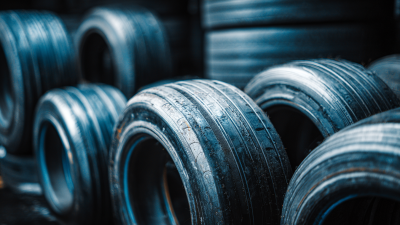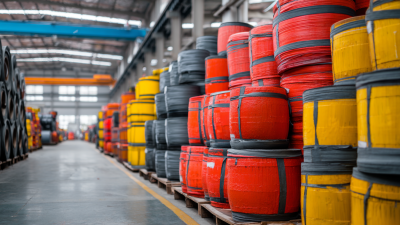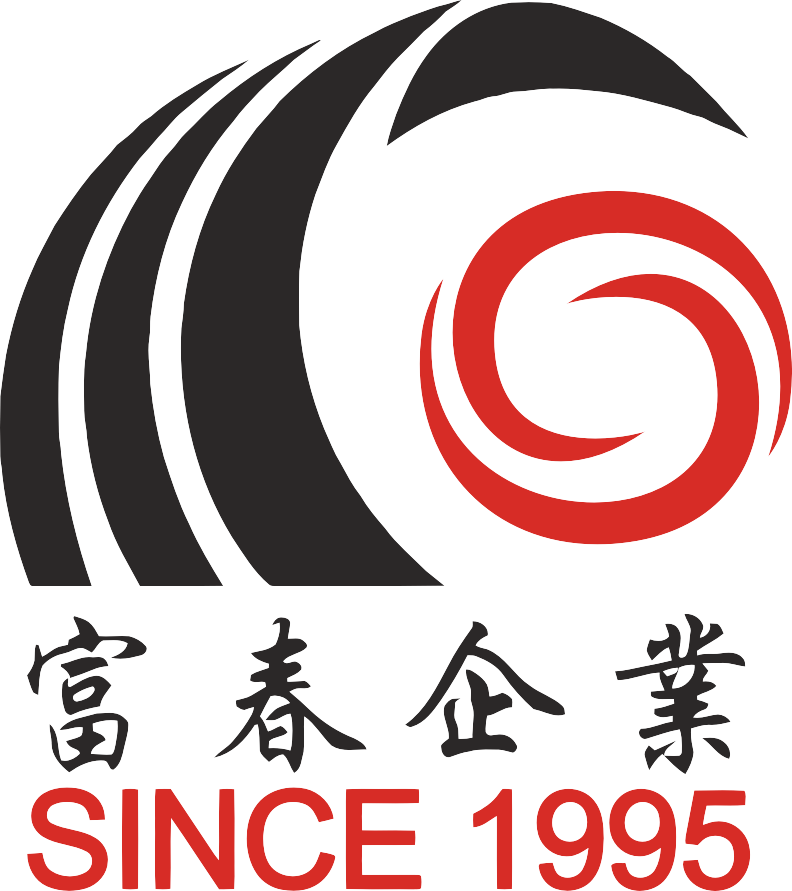Leave Your Message
The use of inner tubes in various applications, from bicycles to automotive tires, has become a standard practice; however, recent studies highlight the need for innovative alternatives that not only enhance performance but also promote sustainability. According to a report by the International Council on Clean Transportation, nearly 70% of all tire-related waste is generated from conventional inner tubes, prompting a search for more eco-friendly solutions.

The demand for lightweight and durable materials has surged, as manufacturers seek to improve efficiency and reduce environmental impact. Innovations such as solid tires, airless designs, and biodegradable materials are emerging as potential replacements for traditional inner tubes, offering both improved functionality and a lower carbon footprint. As the industry evolves, stakeholders are challenged to embrace these alternatives, ensuring both enhanced performance in various applications and a commitment to sustainability for future generations.
The tire industry is undergoing a significant transformation, driven by innovative technologies that enhance performance and sustainability. Recent reports predict the global rubber tire market will reach $209.2 billion by 2031, fueled by increasing vehicle production and the demand for fuel-efficient tires. This surge presents a unique opportunity for manufacturers to pivot towards more sustainable practices while maintaining high performance standards.
Emerging technologies are redefining tire manufacturing, with companies investing heavily in eco-friendly solutions. Advances in materials science have led to the development of recycled tire products that not only reduce waste but also retain robust performance characteristics. Moreover, investments in circular economy initiatives are becoming increasingly prevalent, highlighting an industry-wide shift toward sustainable practices. For instance, notable advancements have been made in transforming reclaimed rubber into high-performance products, demonstrating the potential of circularity in driving innovation within tire manufacturing.
As the industry evolves, we can expect to see a wave of revolutionary tire designs that incorporate both innovative materials and smart technologies. This shift will not only enhance driving safety and efficiency but also align with global sustainability goals, paving the way for a greener future in automotive technology.
The search for eco-friendly materials in tire production has become increasingly critical as the world faces growing environmental challenges. A report by the Tire Industry Association highlights that tires account for approximately 90% of vehicle-related waste, with around 300 million scrap tires generated annually in the U.S. alone. This urgent need for sustainability has spurred innovations in alternative materials that not only enhance performance but also reduce environmental impacts.
Recent developments in bio-based materials, such as natural rubber from guayule and dandelion, are promising alternatives to traditional petroleum-based rubbers. Studies conducted by the United States Department of Agriculture have shown that these materials can significantly reduce the carbon footprint associated with tire production by up to 30%. Additionally, the integration of recycled materials like reclaimed rubber and eco-friendly additives is gaining traction, demonstrating the potential to create a circular economy within the tire industry.
By investing in these sustainable solutions, manufacturers can meet the demand for improved performance while minimizing their ecological impact, leading to a cleaner, greener future for transportation.
The pursuit of innovation in the tire industry has led to the emergence of alternative solutions that prioritize both performance enhancement and sustainability. Companies are pioneering cutting-edge materials and designs that could potentially replace traditional inner tubes, contributing to reduced environmental impact and improved efficiency. For example, some manufacturers are exploring the use of biodegradable composites and recycled materials that not only meet performance standards but also align with global sustainability initiatives.
In this evolving landscape, several companies are at the forefront of these innovations. They are leveraging advanced technologies such as AI and data analytics to optimize tire performance and production processes. These efforts are complemented by case studies showcasing successful implementations of sustainable practices, which highlight the importance of transparency and collaboration in fostering a greener industry. Through these innovations, the tire sector is set to embrace a future where sustainability goes hand in hand with high-performance solutions, setting new benchmarks for efficiency and environmental responsibility.
As the demand for enhanced performance and sustainability in the cycling industry continues to rise, a quantitative analysis reveals insightful metrics comparing traditional inner tubes with innovative alternatives.
According to a recent report by the International Cycling Union, nearly 30% of cyclists experience performance issues related to inner tube punctures annually. On the other hand, new materials such as self-healing foam and tubeless technology have demonstrated a significant reduction in flat rates, with studies indicating up to a 90% decrease in puncture-related incidents.
Additionally, a lifecycle assessment conducted by the Sustainable Cycling Initiative shows that alternative tire solutions offer not only improved durability but also a lower environmental impact.
For instance, tubeless tires can last up to 25% longer than standard inner tubes, leading to reduced waste and a smaller carbon footprint during production. When comparing rolling resistance, advanced materials have also shown up to a 15% improvement in efficiency, enabling cyclists to maintain higher speeds with less effort.
Such findings make a compelling case for the transition from traditional inner tubes to innovative tire technologies in pursuit of superior performance and sustainability in cycling.
The tire manufacturing industry is experiencing a significant transformation as it shifts towards sustainable practices. Traditional inner tubes, often made from petroleum-based materials, contribute to environmental degradation. However, innovative alternatives are emerging, driven by the need for enhanced performance and a reduced carbon footprint. Manufacturers are exploring bio-based materials and advanced engineering techniques that promise not only improved durability but also significant reductions in waste and resource consumption.
This shift towards sustainability is evident in the adoption of circular economy principles. Companies are increasingly investing in recycling programs and creating products that can be repurposed at the end of their lifecycle. Furthermore, advancements in technology are allowing for the development of tires that maintain performance while using less material, ultimately leading to a decrease in overall production waste. As consumers become more environmentally conscious, demand for sustainable options will likely continue to shape industry trends, pushing manufacturers to innovate and rethink their approaches to tire design and production.
| Alternative Technology | Benefits | Challenges | Sustainability Impact |
|---|---|---|---|
| Self-Sealing Tires | Reduced flat tires, improved safety | Higher production costs | Less waste; longer tire life |
| Airless Tires | Eliminates punctures, consistent performance | Limited availability, heavier weight | Reduced resource usage over time |
| Smart Tires | Integrated sensors for performance monitoring | Potential data privacy issues | Optimized usage, lower emissions |
| Biodegradable Tires | Environmentally friendly disposal | Durability concerns | Significant reduction of landfill waste |
| Recycled Rubber Tires | Resource conservation, lower material costs | Variable performance characteristics | Reduces raw material extraction |







